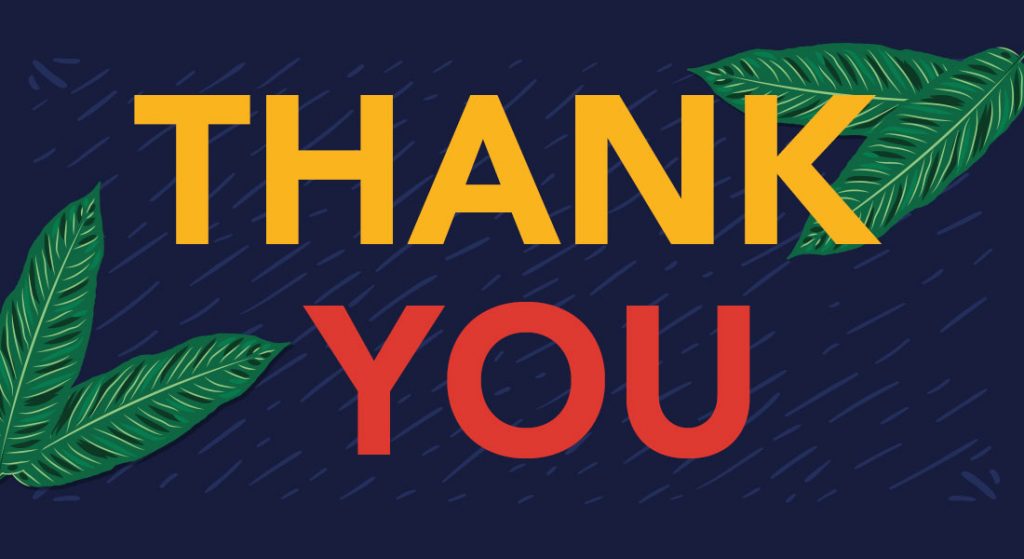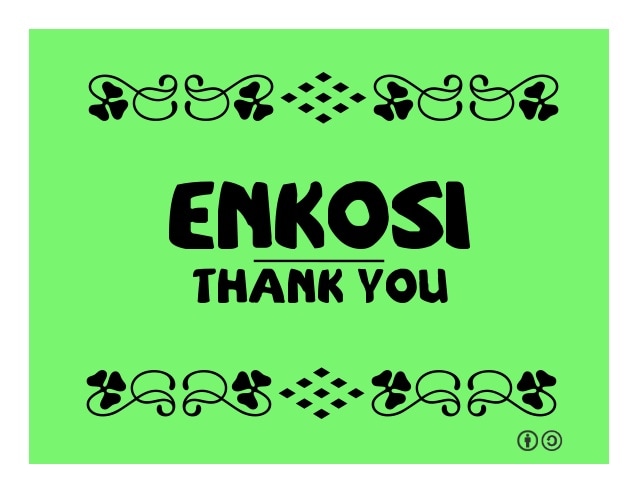Saying “Thank You” is the easiest way of expressing gratitude. Being grateful is the least you can be and it brings lots of happiness into your life. It also shows a sign of respect and courtesy to the person you’re relating with. It gives them the impression that they have done something to help, thereby boosting their self-esteem and confidence. Across various tribes, thank you in South African languages is of important cultural significance and there is even more to it.
South Africans are people with a rich cultural heritage worth emulating by most countries on the continent. Saying thank you in any South African language is a major part of the daily lives of the people. In this write-up, I will walk you through the various ways of saying “Thank You” in the different tribes in the country, including Tsonga, Sotho, and Shona.
Different Ways of Saying “Thank You” in South African Languages
Just like the rainbow has 7 unique colors, making it stand out and distinct, so is it with the South African people who have 11 official tribes/languages, granted equal status by the Constitution.
Interestingly, the South African tribes with their beautiful shades, cultural and ethnic diversity, have their unique way of saying “Thank You”. How will you feel if a foreigner looks into your eyes and speaks in your mother’s tongue? The feeling is overwhelming. That is the reason many South Africans love to say “Thank You” in their dialect. Locals appreciate it when foreigners try to communicate in their languages.
Also, many South Africans love to greet and/or receive greetings in their language. It is the most effective and important way of greeting people, especially when communicating with those from rural areas. So, don’t be shy, South Africans are friendly and accommodating, just make sure to communicate in their local language.
1. “Thank You” in Tsonga – Ndzi Khense Ngopfu
The Tsonga is a minor tribe in South Africa, and it’s mostly spoken by people living along the border of South Africa and Mozambique. In showing appreciation for a deed done, the people of Tsonga say Ndzi khense ngopfu meaning thank you very much.
2. “Thank You” in Sesotho sa Leboa – Ke a Leboga or Re a Leboga
The Sesotho sa Leboa language is also known as Northern Sotho. Records have it that about 4.6 million South Africans speak Sesotho sa Leboa as their main language aside from English. The people of Sesotho sa Leboa’s special way of saying thank you and that is Ke a Leboga. If you’re speaking as a group, you could also say Re a Leboga meaning we thank you.
3. “Thank You” in Shona – Wazviita
Though originally from Zimbabwe, the Shona tribe are also in South Africa and some other Southern African countries like Botswana, Mozambique, and Zambia. To say thank you in Shona, you say wazviita.
4. “Thank You” in Zulu – Ngiyabonga
Zulu, which is a Southern Bantu language, is one of the most spoken official languages in South Africa. It is a tribe that stands out from other tribes in South Africa because of its ability to create words from new items and concepts.
In the Zulu tribe, when a person says – Ngiyabonga (kakhulu), meaning thank you (very much), your response should be – Kulungile, which means you’re welcome.
5. “Thank You” in Ndebele – Ngiyabonga
Here’s a language that uses clicks for consonants. The Ndebele tribe has about 1.1 million speakers in South Africa. If you visit Cape Town, then you should see more Ndebele speakers. They are also found along the Southeastern coast. In gratitude to a Ndebele speaker, you should say Ngiyabonga and you’ll get a response – Kulungile.
6. “Thank You” in Afrikaans – Dankie
Speaking of the most widely spoken languages in South Africa, Afrikaans comes third in the country. It came into existence during the colonization of South Africa by the British and was considered the interior form of the Dutch.
Afrikaans have their way of saying thank you. Just in case you get helped by any of them, you should say – dankie meaning thank you. The response you get for saying this is – nie te dankie meaning you’re welcome.
If you’re addressing an elder person and you want to be polite, then you should say baie dankie meneer meaning thank you, sir. When speaking to a female, you can say baie dankie mevrou meaning thank you, madam.
7. “Thank You” in Sesotho – Ke a laboha or Ke a laboha haholo
The Sesotho people of South Africa are referred to as the Southern Sotho. How do you say ‘thank you’ in Sesotho? Ke a laboha or you can say Ke a laboha haholo. Response would be O amohetswe meaning you’re welcome.
8. “Thank You” in Swati – Ngiyabonga Ngiyabonga Kakhulu or Ngikhona ngiyabonga
Swati which is also called Swazi and called siSwati (most especially by its users), has most of its speakers densely populating the Northeast of South Africa, with a few scattered across other parts of the country.
The Swati’s way of saying thank you is similar to that of the Zulu people, with just a slight difference. You can say Ngiyabonga Ngiyabonga Kakhulu (thank you). You can also say ngikhona ngiyabonga meaning I am fine, thank you.
9. “Thank You” in Xhosa – Ndiyabulela or Enkosi
Xhosa is a Bantu language commonly spoken by people in the Eastern Cape, Western Cape, Northern Cape, and Free State in South Africa. Lesotho and Botswana also speak the language. If you speak Xhosa, then you must be familiar with saying thank you in the language. But if you aren’t, it’s best to learn it now. Ndiyabulela or Enkosi in Xhosa means thank you. Its corresponding response is – Wamkekekile, which can be used in response to a kind gesture.
In being courteous, you can also say – Ndiyabulela kakhulu which means thank you very much. The response to this can be – nam ndiyabulela which means you are welcome.
10. “Thank You” in Venda – Ndi a livhuwa or Ro a livhuma
Another Bantu language in South Africa is Venda. It can also be referred to as Tshivenda. Venda’s speakers are only found mostly in Johannesburg and the far Northeastern part of South Africa. The Tshivenda says – Ndi a livhuwa or Ro a livhuma when saying thank you. You can also say – Nne ndo takala vhukuma meaning I’m fine, thank you.
11. “Thank You” in Setswana
Setswana is also called Tswana and is also a Bantu language. It is spoken by South Africans in the Northeastern regions of the country. Here are the various ways you can say a ‘thank you’ in Setswana;
- Ke a leboga rra (from male to male)
- Ke a leboga mma (from male to female)
- Ke itumetse rra (from male to male) and;
- Ke itumetse mma (from male to female)
The two responses you’ll get in this case could be;
- Ke itumetse rra (from male to male) or;
- Ke itumetse mma (from male to female)
Summary of the Different Ways To Say “Thank You” In South African Languages
- Ndzi khense ngopfu (Tsonga)
- Ke a Leboga or Re a Leboga (Sesotho sa Leboa)
- Wazviita (Shona)
- Ngiyabonga (Zulu)
- Ngiyabonga (Ndebele)
- Dankie (Afrikaans)
- Ke a laboha or Ke a laboha haholo (Sesotho)
- Ngiyabonga Ngiyabonga Kakhulu or Ngikhona ngiyabonga (Swati)
- Ndiyabulela or Enkosi (Xhosa)
- Ndi a livhuwa or Ro a livhuma (Venda)
- Ke a leboga rra, Ke a leboga mma, Ke itumetse rra or Ke itumetse MMA (Setswana)

